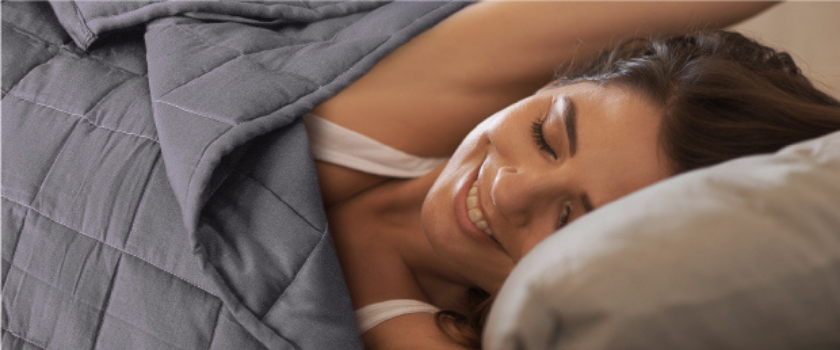When you keep tossing and turning at 3 a.m., falling asleep may feel like an unattainable goal, yet excellent sleep is more within your control than you believe. However, if you follow proper sleeping habits, you can feel the difference between restlessness and restful slumber. Insomnia is a situation or a condition when you find it difficult to stay asleep. Most people face insomnia and sleep issues as a result of financial stress, worry, or due to irregular sleep routines. However, if you are having difficulty sleeping for weeks or months, it can lead to health problems and worrying about it only makes it worse.
According to the National Institute of Health, every individual requires at least 7-8 hours of sleep every night to maintain good mental and physical health, improve quality of life, and prevent an increased risk of heart problems.
Hence, here are a few tips and bits of advice that will help you get better sleep, and can also help to treat insomnia, not completely, but at least to an extent.
Avoid Caffeine and other chemicals that disrupt your sleep
Caffeine, as every coffee lover knows, is a stimulant that keeps you awake. Hence, it is advised that you avoid taking caffeine at least four to six hours before bedtime if you want to have a good night’s sleep. Similarly, smokers should also avoid using tobacco products too close to bedtime.
Many people have the habit of sipping half a glass of alcohol before going to bed. Although it may aid in the onset of sleep, however, it starts to work as a stimulant after a few hours, increasing the frequency of awakenings and lowering the quality of sleep later in the night. It is thus best to restrict the consumption of alcohol within three hours of bedtime.
Exercise
Going for vigorous daily strolls will not only slim you down, but will also keep you awake less frequently at night. Exercise increases the effectiveness of natural sleep chemicals like melatonin. According to research published in the journal Sleep, postmenopausal women who exercised for roughly three and a half hours per week had an easier time falling asleep than women who exercised less frequently. However, it is advised not to exercise too close to bedtime, as it can be stimulating.
De-stress yourself
The bills are stacking up, and your to-do list is at least a mile long. Worries from the day might rise to the surface at night. Stress acts as a stimulant. It stimulates the fight-or-flight hormones, which are antagonistic to sleep. Thus it is high time that you allow yourself some time to unwind before going to bed. Learning different kinds of relaxation responses can help you sleep better and lessen your worry during the day. Deep breathing techniques might also help you relax.
Turn your bedroom into a sleep-inducing environment
A calm, dark, and warm atmosphere can aid in the promotion of sound slumber. This is the only reason that bats cluster in caves during the daytime. You can reduce the volume of outside noise with the help of earplugs or white noise equipment to create such an atmosphere. During the summers, you can also maintain a comfortably cool temperature between 15 to 20 degrees and keep the room properly ventilated. Make sure that your bedroom has a comfortable mattress and pillows. If you have joint pains or pesky back pains that restrict your night’s sleep, you must buy a good quality orthopedic mattress at affordable prices which you can get either online or at stores near you. However, with innumerable options online, you can buy bed mattresses from authorized websites and enjoy a comfortable sleep.
Do not take irregular naps
Many people have the habit of taking irregular and longer naps daily. However, for people who face difficulty in falling or staying asleep at night, taking naps in the afternoon might pose as one of the reasons. This is because late afternoon naps lower sleep drive. And if you have the habit of sleeping in the noon, it is advised to keep it brief and before 5 pm.
Improve your eating habits
A growling stomach might keep you awake, but so can an excessively full stomach. Avoid eating a heavy meal within two to three hours of going to bed to have an undisrupted sleep.

